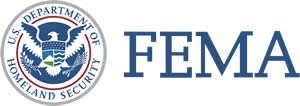RSS feed source: Federal Emergency Management Agency
DENTON, Texas – Revised Preliminary Flood Insurance Rate Maps (FIRMs) are available for review by residents and business owners in the city of El Paso; the towns of Anthony, Clint and Horizon City; the village of Vinton; and unincorporated areas of El Paso County, Texas.
Property owners are encouraged to review the latest information to learn about local flood risks and potential future flood insurance requirements. Community residents can identify any concerns or questions about the information provided and participate in the appeal and comment periods for the maps.
This is El Paso County’s first complete set of digital FIRMs. These maps serve multiple purposes, including defining Special Flood Hazard Areas (SFHAs). SFHAs are areas at high risk for flooding. Community leaders can use these maps to make informed decisions about building standards and development that will make the community more resilient and lessen the impacts of a flooding event.
FEMA stresses that flooding can and does happen outside of the most vulnerable areas.
Review the revised preliminary flood maps by visiting the local floodplain administrator (FPA). A FEMA Map Specialist can help identify community FPAs. Specialists are available by telephone at 877-FEMA-MAP (877-336-2627) or by email at [email protected].
The revised preliminary maps may also be viewed online:
For more information about the flood maps:
There are cost-saving options available for those newly mapped into a high-risk flood zone. Learn more
Click this link to continue reading the article on the source website.

